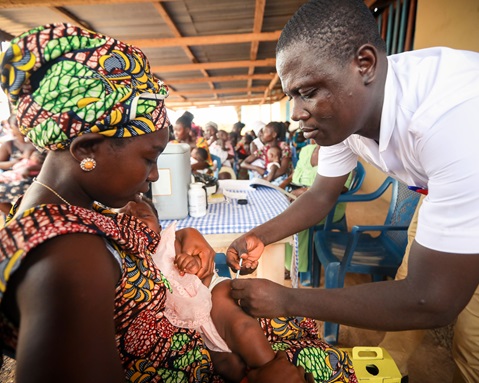/photostory/malaria-vaccine-one-year-on/malaria-vaccine-first-babies-7.tmb-768v.jpg?sfvrsn=b50a6434_11)
WHO/N. Thomas
©
Credits
World Malaria Day 2022 will be marked under the theme “Harness innovation to reduce the malaria disease burden and save lives.” No single tool that is available today will solve the problem of malaria. WHO is calling for investments and innovation that bring new vector control approaches, diagnostics, antimalarial medicines and other tools to speed the pace of progress against malaria.
Despite steady advances in lowering the global burden of malaria between 2000 and 2015, progress has slowed or stalled in recent years, particularly in high burden countries in sub-Saharan Africa. Urgent and concerted action is needed to set the world back on a trajectory toward achieving the 2030 targets of the WHO global malaria strategy.
Malaria is a preventable and treatable disease that continues to have a devastating impact on the health and livelihood of people around the world. In 2020, there were an estimated 241 million new cases of malaria and 627 000 malaria-related deaths in 85 countries. More than two thirds of deaths were among children under the age of 5 living in the WHO African Region.
Related news
Technical products

A framework to guide countries in their efforts to accelerate progress towards malaria elimination
/word-malaria-report/wmr-2021.tmb-144v.jpg?sfvrsn=a8b77d4b_4)
6 December 2021
World malaria report 2021
An in-depth update on global and regional malaria data and trends.




/feature-stories/door-to-door-distribution-itns-cameroon.tmb-479v.jpg?sfvrsn=91400d2f_2)
/photostory/2018-vector-control/vc-tools-photostory-7.tmb-479v.jpg?sfvrsn=171709e_6)
/malaria-vaccine-first-babies-500pix7b68b5bd00bf49a79517fea854f4cbf3_3becb335-06a4-43af-9b5b-56ef8683aef8.jpg?sfvrsn=41bda56f_25)
